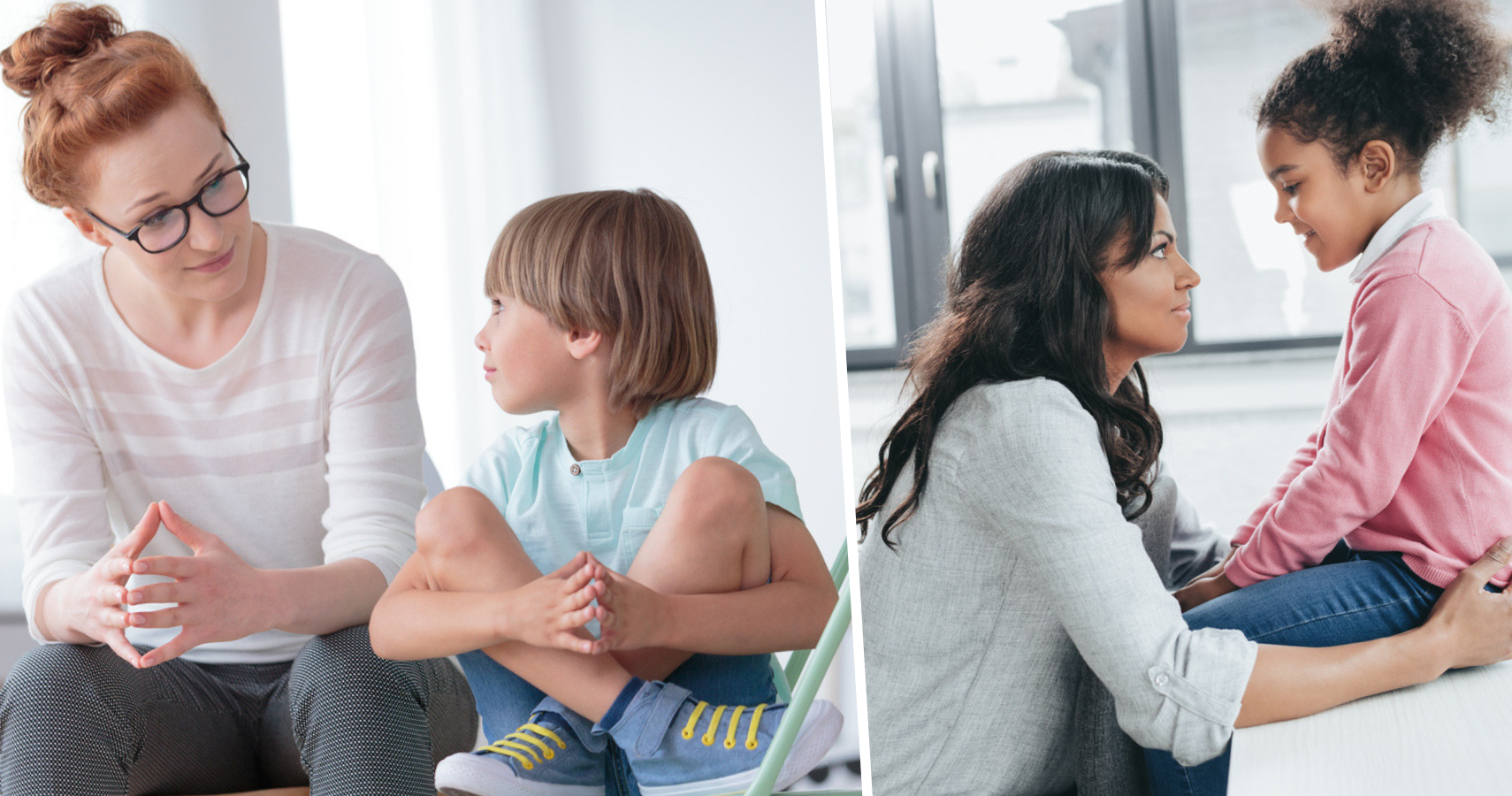In the aftermath of Hurricane Florence that caused extensive damage to the Carolinas last month, not to mention the countless other natural disasters that have occurred and continue to occur on a global scale, there's never a bad time to talk to your kids about these events. Your child's age largely depends on how you should handle "the talk," but opening the lines of communication can be a defining factor in how they cope in the wake of these terrifying and sometimes catastrophic moments in time.
As parents, we like to think that we do our best to keep our kids safe from everything. Unfortunately, while we can banish monsters from closets and kiss boo-boos, we have little to no power against the forces of nature. So how do you talk to kids about natural disasters? Let's first sort it out by age.
If your child is under the age of 5:
Keep it simple. Break the situation down into easy to understand facts about what is going on around them. According to HealthyChildren.org, it's important to offer real, truthful explanations of what happened and how it will personally affect them. For example, if you lose power, help them to understand why the electricity is currently out of commission. In terms of weather-related incidents, there are some great children's books on the market that can help if you're a bit tongue-tied about how to explain something scientific in regards to the weather. One that covers a lot of areas is Fly Guy Presents: Weather. While it's meant as an early reader book, it can really help simplify things like hurricanes, tornadoes, and blizzards for little kids. When they have straight facts, it can be a source of comfort. Not to mention knowledge is fun!
If your child is of elementary school age:
Take into consideration similar approaches as suggested for parents of younger kids, but go into a bit more detail. Children who are a little older may be really interested in learning specifics about the recover efforts. As Mr. Rogers regularly reminded us back in the day, it's nice to know there are "helpers" and comforting to know where to look for them.
PREVIOUSLY: Places Offering Free Housing For Families Fleeing Hurricane Florence
In an article he wrote for the American Academy of Child and Adolescent Psychiatry, Dr. David Fassler, a child and adolescent psychiatrist in Burlington, Vermont, encourages parents to really listen to and acknowledge the fears and concerns of children during these difficult times. Try not to brush these comments off with a simple, Everything is going to be okay. It's important for kids to feel heard and their feelings validated by grownups.
Additionally, Fassler says that although caregivers should try to be reassuring, they don't make promises that are simply unrealistic. Just when we think Mother Nature could zig, she could zag, so try not to put yourself in a position where your kiddos don't trust you because you made a promise that was impossible to keep.
If your child is in middle school or high school:
By this time they've likely either already been through the experience of a natural disaster, or have talked through one at school as a subject of current events. Still, they're going to look to mom and dad for a sense of support, community, and safety during a time of turmoil.
It isn't so easy to limit their access to the media at this age, particularly if they have their own phones, tablets, or computers (or all of the above), but do your best to limit their exposure to anything too sensational. Disturbing images will do nothing to help them sleep at night, and you want them to feel comfortable talking to you and your entire family about what's going on as opposed to getting their information from a single source. It's not a matter of hiding pertinent information from your kids, it's more keeping an eye on how and where they're receiving the news.
Being prepared for a severe weather event can also go a long way in both keeping your family safe and making your kids feel comforted in the midst of chaos. Depending on your geographic location and risk for such disasters, keep a kit stocked and accessible that offers the basic necessities. And always pay close attention to advisories by local officials about what to do in the event of an emergency.
READ NEXT: How To Talk To Your Kids About Death

